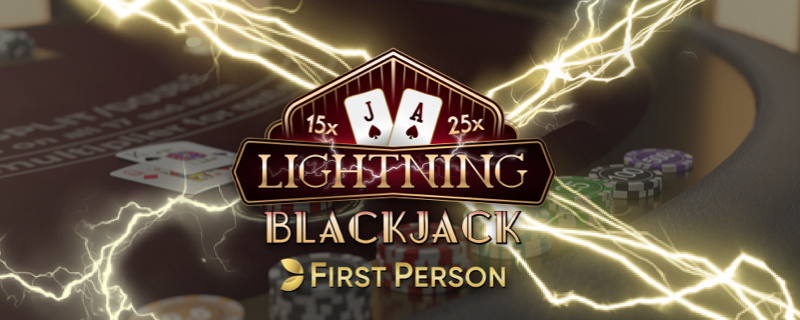ALL-WEATHER TRACKS KEY TO ‘CARNIVAL RACING’ RESUMPTION: Plans for racing’s resumption on AW tracks only in May, with the Classics in sequence on turf from June onwards, are revealed by Daqman today in what he calls a ‘carnival-style racing scheme without spectators and behind closed-doors.’
DAQMAN’S COMPUTER PICK OF THE 20TH-CENTURY NATIONALS: Who was the greatest Grand National winner? ITV1 hopes that all will be revealed in a simulated race of champions on Saturday, but which horses should ‘run’? Daqman continues his ABC guide (1950 to 2020), which started in yesterday’s column, with a computer race of his own today picking a Top Ten from the 20th century.
RACING-RETURN PLAN REVEALED
Carnival-style without the crowds. That’s one industry plan for an English racing resumption (Flat only) from May 1, or as soon as.
Week-long race meetings will be behind closed doors in one location only, with horses and handlers from the local area or staying on site as much as possible. Then the ‘carnival’ moves on for another week’s stay.
The ribbon of AW tracks in England is perfectly placed for a resumption: going up country, Lingfield, Kempton, Chelmsford, Southwell, Newcastle, Edinburgh. Three or more of them could take Classic trials.
My contact tells me: ‘We hope to reschedule Guineas, Derby and Oaks in sequence on turf from June onwards (that’s just two tracks), with the Champions Day at Ascot in the autumn moved forward to become a three-day Royal Ascot and taking in a St Leger (that’s three tracks altogether).’
He added that this was ‘one of several designs on a desk-top’ at this stage and that ‘a Springtime resumption depends on the government’s strategy and, regarding the chosen AW track or tracks, depends on their aspect of containment and, hopefully, their location in a trouble-free area or areas.”
A HORSE CALLED SNAIL WINS IT
He’s the forgotten horse. The one they all overlook. So much so that you didn’t even notice – or did you? – that I missed him out of yesterday’s ABC list of probables for ITV’s Grand National Race Of Champions.
The bookies are already hinting it’s a two-horse race, a match with Red Rum odds on over Tiger Roll.
But the computer race of past winners of the 20th century that I produced for a national newspaper had L’Escargot narrowly in front on the line.
L’Escargot (French for ‘snail’) lays claim, even when I add 21st-century winners tomorrow, to be the greatest horse to win a Grand National, whereas Red Rum was the greatest winner of the race itself. There is a difference.
Golden Miller is right alongside but his Gold Cup and National were even more remote to the races we know today, both in time, track and quality of field, and the question on Saturday will be how remote is the 20th century to today’s National with its revised conditions and obstacles?
But let’s delve back to the good old bad old days first. How does it work that Red Rum won three Nationals, but the algorithms all added up to L’Escargot, who won once?
There are negatives about the ‘snail’, trained by Dan Moore and ridden to victory at Aintree in 1975 by Tommy Carberry. He didn’t play to the gallery; he wore blinkers; he was 12 when he won the National; he was never the popular hero. But just look at his record:
1970 Gold Cup: L’ESCARGOT (WON 33-1) beat French Tan and Ladbrokes Trophy (then Hennessy) winner Spanish Steps, with the favourite Kinloch Brae, hyped as ‘the next Arkle’, a faller at the third last.
1971 Gold Cup: L’ESCARGOT (WON 7-2) beat Leap Frog and The Dikler, who in 1973 beat the odds-on Pendil in a photo for ‘gold’ and in 1974 ran second to Captain Christy, who would be 1974 and 1975 King George winner.
L’Escargot became only the second horse to win the Gold Cup and the Grand National after Golden Miller (1934) but not in the same year.
Red Rum beat him first time they met at Aintree but in 1975 L’Escargot scored by 15 lengths, with his old Gold Cup adversary, Spanish Steps, in third.
1974 Grand National: RED RUM (WON 11-1), L’ESCARGOT (2nd 17-2) in receipt of a pound.
1975 Grand National: L’ESCARGOT (WON 13-2), RED RUM (2nd 7-2) giving 11lb.
Red Rum was no Gold Cup horse but an Aintree animal pure and simple, crowned the best of all time when when he won a third National in 1977, the cheering only muted because the crowd cried.
His 1973 victory was probably the greatest National ever run, with Red Rum first from Crisp and L’Escargot, when the first four home beat Golden Miller’s course record.
Was the computer wrong to judge L’Escargot the better horse? It had two reasons for doing so. Computers don’t actually ‘reason’ so my form people must have fed them in.
They were his ‘class’ as a Gold Cup winner twice and his 1975 defeat of Red Rum as a massive improvement on the previous year when he’d run him close at a difference of pound.
His weight pull in victory was not as big as his winning margin, though softer ground helped. Red Rum was a natural at the National fences; L’Escargot had to learn.
His 1975 triumph was a sensational performance but the nail in the snail’s coffin as far as the public was concerned. How dare he beat their beloved Rummy!
Peter O’Sullevan called him home: ‘L’Escargot is going to avenge last year’s defeat by Red Rum. Tommy Carberry is going to become the first jockey in history to win the Gold Cup, the Irish National and the Grand National. Here he comes striding clear at the line.’
I will sum up my views tomorrow and I will include my top 21st-century National horses and later on arrive at an order in for Saturday’s winners’ race.
* Computer Grand National (20th century only): 1 L’Escargot, 2 Red Rum, 3 Golden Miller, 4 Reynoldstown, 5 Party Politics, 6 Corbiere, 7 West Tip, 8 Royal Tan, 9 Sundew, 10 Mr Frisk.
Did you know that as well as checking the realtime prices on BETDAQ below – you can also log into your account and place your bets directly into BETDAQ from BETDAQ TIPS.







